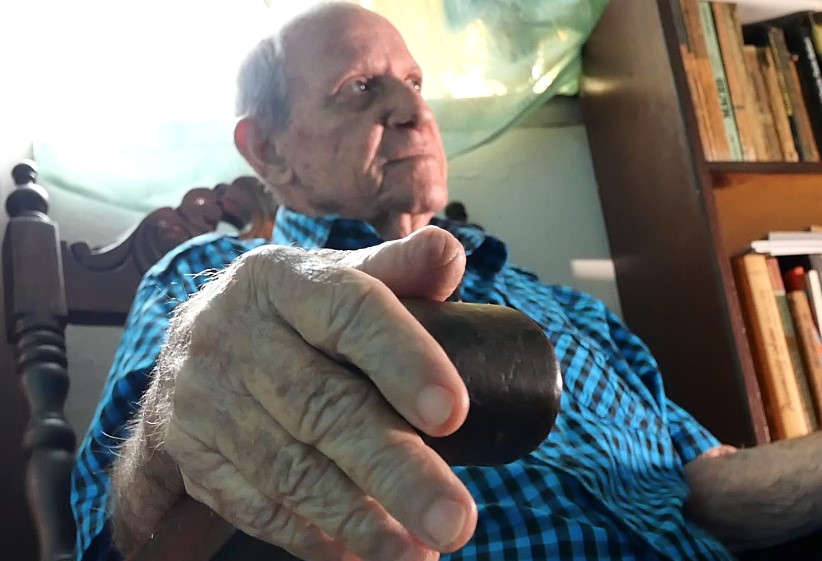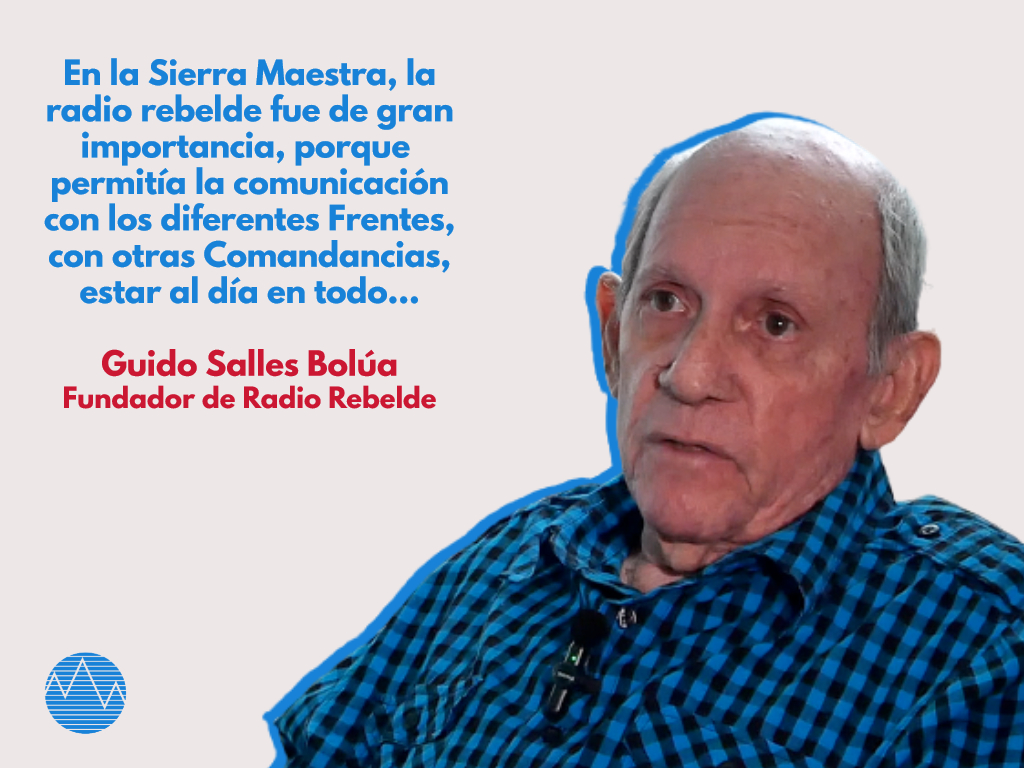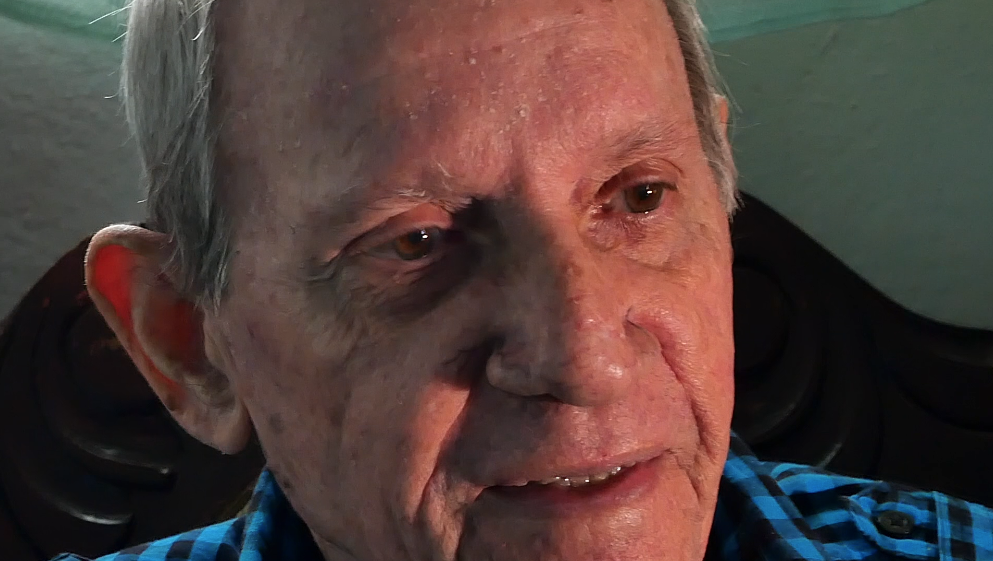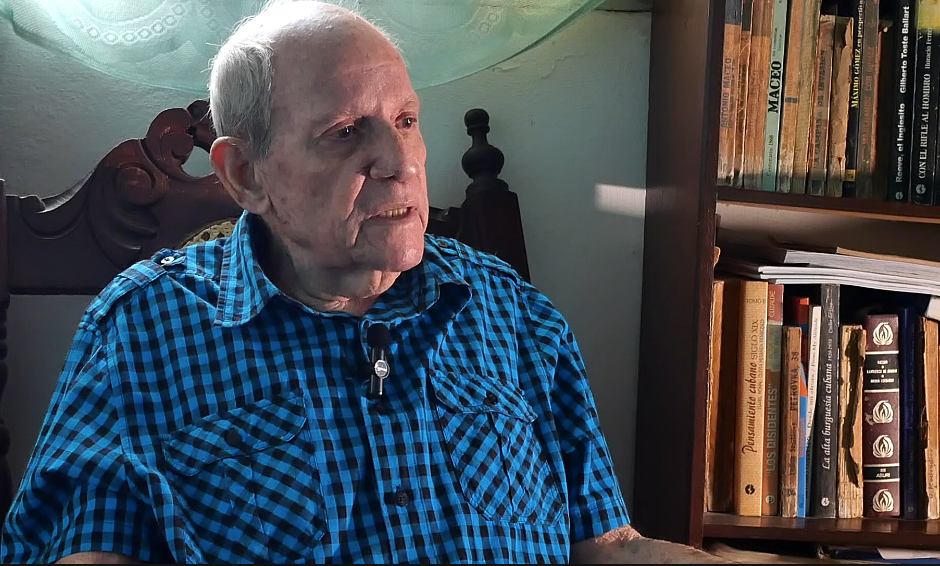He has the privilege of having been part of those who helped to form what was called as “the great Chain of Freedom.” Guido Salles Bolúa is one of those men who, in the middle of combat, turned the radio into a weapon.
65 years later, talking to him is like embarking on a journey through an unknown story to many people, and that he tells it, along with that humble nature of someone who does not recognize any merit in his life other than having been there, in the right place, to fulfill his duty.
His words build the testimony, and a story told in first person by a man who, without meaning to, became the protagonist of one of the most interesting and unknown passages in the nation’s history. Therefore,

At 84 years old, this is how Guido speaks to us…
“When I joined the Sierra Maestra mountain range, the Radio Rebelde radio station already existed. The then local Segundo Frente (Second Front) began to be created, and they spoke with all the combatants who were radio technicians. I had studied radio and television by correspondence and I then enlisted”.
“Some time later some radio equipment began to arrive. We, then, took that equipment and named it as 8 IB, given it was the way it was called the Segundo Frente (Second war Front) and all the other radio equipment also began with 8, and we were assigned the 8 IB (‘Eight brave Indians’)”.

“That’s how we started practicing. We used to travel on horseback up to o four or five kilometers away to see if that equipment could be heard to get to know how it sounded better”.
“We first placed it right there in Bayate, about two blocks away from the headquarters where Efigenio Ameijeiras was based. That equipment belonged to the then Juan Manuel Ameijeiras 6th Column, and we did the first related practice there”.
“Over time, the radio equipment began to feel further away and we were already connected with the Sierra Maestra mountain region. And we even communicated with radio amateurs in Venezuela, that is to say, that radio equipment had good power as you could hear it well”.

“When the general guidelines were given, both by Fidel’s headquarters and by Raúl, we made that information to be chained so that everyone could listen to them. Then we, ourselves, transmitted those messages”.
What about during combat?
“We always had a signal in the case of aviation, because you had to take great care of it, given the planes detected us and could bomb the equipment”.
“When they approached we used to say ‘8888’ and then we turned off the radio equipment. All the equipment was turned off at that moment and then continued later”.
Guido, some 65 years later, what does it mean to have been part of Radio Rebelde station and the then great Cadena de la Libertad station in your life?

“As for me, it has been a pride to have worked there, to have provided a service and to deal with all those colleagues that we met on that occasion, we became good colleagues, and we got along well during all the time at work”.
“We never had divergences and we always worked together by trying to do things well despite the youth we had and the little experience we had in that field”.
“If being part of the Revolution was a lesson, having belonged to the Radio Rebelde station was a lifetime lesson”.


